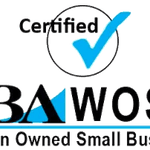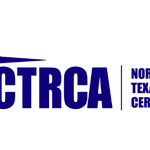Explore the ICF Team Coaching Competency for establishing and maintaining agreements, a foundational step in aligning teams and ensuring long-term coaching success.
Cherie Silas, MCC
Cherie is a co-founder and the CEO of Tandem Coaching. Her background is in executive, leadership, and agile coaching as well as organizational design.
She has over 20 years of experience as a corporate leader and uses that background to partner with business executives and their leadership teams to identify and solve their most challenging people, process, and business problems in measurable ways.
She has over 20 years of experience as a corporate leader and uses that background to partner with business executives and their leadership teams to identify and solve their most challenging people, process, and business problems in measurable ways.
Embodying a coaching mindset is crucial for team coaches working toward their ICF ACTC certification. Explore the key competencies needed to guide teams toward success.
Ethical practice is essential in ICF team coaching. This guide covers maintaining confidentiality, resolving conflicts, and balancing team dynamics while adhering to ICF standards.
Managing hybrid and remote teams requires a fresh approach to leadership. Learn how to improve key leadership skills such as communication, trust-building, and autonomy while using technology to enhance collaboration and prevent burnout in today’s flexible work environments.
Struggling with people management as an IT leader? Discover how executive coaching bridges skill gaps and transforms you into a confident, high-performing leader.
Struggling with delegation? Discover how executive coaching empowers senior IT leaders to delegate effectively, build trust, and enhance team performance. Learn actionable strategies for reducing burnout and focusing on strategic initiatives.
What if the key to unlocking your coaching potential was just one certification away? Put yourself in the client’s shoes for a moment: imagine having to choose a coach amongst the thousands offering their services online and offline. How would you know whom to trust? Becoming an Associate Certified Coach (ACC) means that clients have […]
Strong leaders take companies to the next level. But the cold, hard truth is that exceptional leadership abilities don’t develop overnight. Transforming impressive individual contributors into strategic people managers requires targeted development plans that consolidate personalized assessments, immersive learning, and consistent practice tailored to their unique needs. The good news is that with the proper […]
Even coaching just one leader in an organization can have a ripple effect that improves soft skills in the whole organization. As a PCC-credentialed coach, you can be the one making that difference! If you are on the journey to achieving your Professional Certified Coach (PCC) certification from the International Coaching Federation (ICF), you must […]
If you want to keep growing as a leader in your field, start by adding some great books to your reading list. Whether you lead teams, run projects, or make big strategy calls, reading up on leadership skills is key to success. Experts who have already climbed the career ladder have packed their know-how into […]














